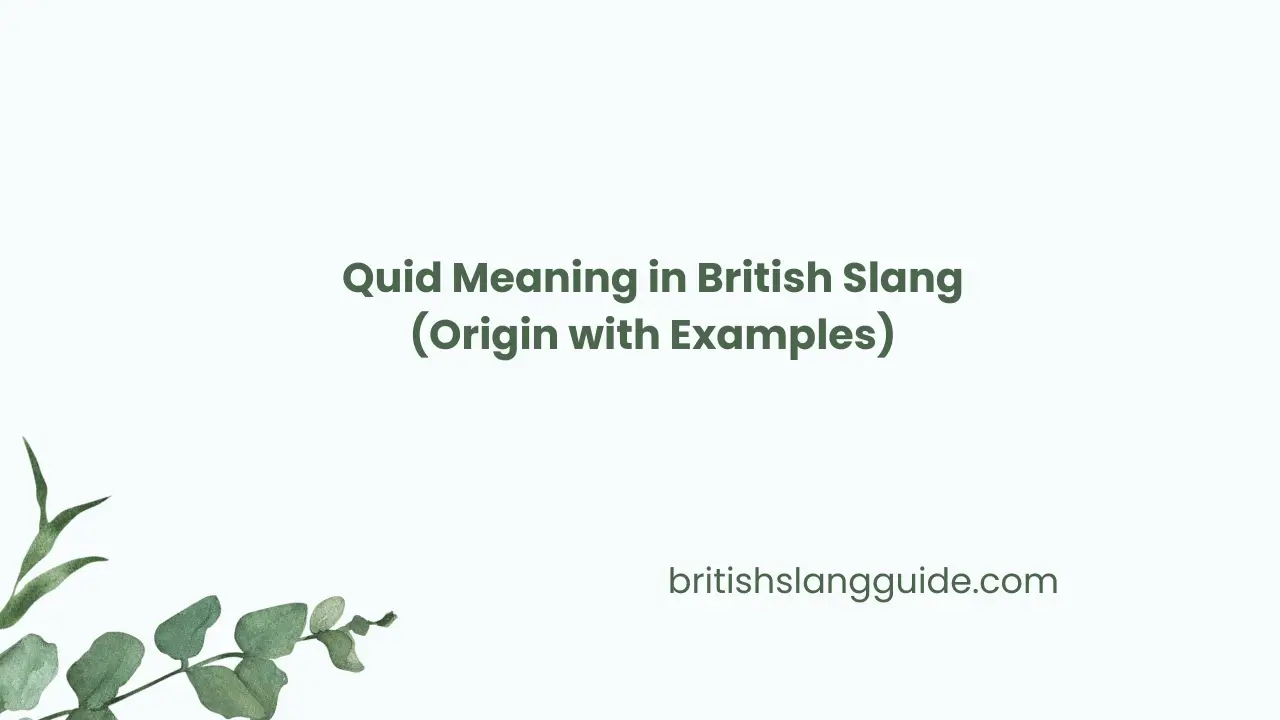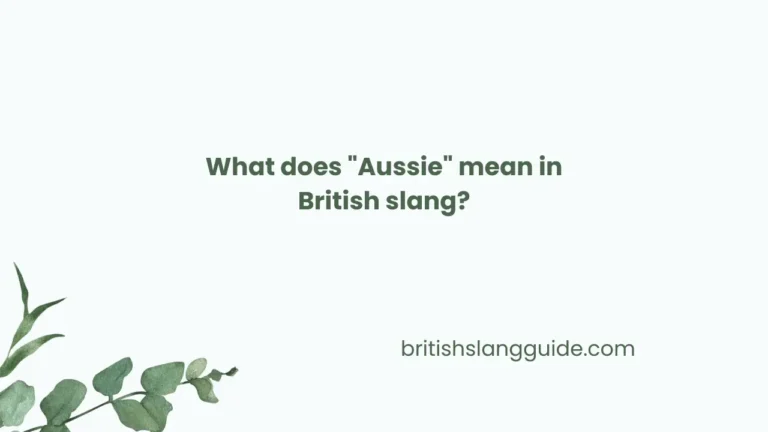Quid Meaning in British Slang (Origin with Examples)
In British slang, the word “quid” most commonly refers to the British pound term or the pound sterlings, the official currency of the United Kingdom. Such terms are use in everyday language and can be hear by both the local population and tourists when referring to money-related issues. The etymology and use of “quid” offer a glimpse into the British way of life and language.
Origin of the Term
The etymology of the word “quid in British Slang” cannot be placed with certainty.
However, a common theory suggests that it hails from the Latin phrase ‘quid pro quo’, which means ‘something for someone.’ This expression is predominantly use in law and business to mean an exchange that occurs or a deal that is made. With time, “quid” became the informal slang for the British currency as it connot something of value that would be exchange for something else.
Similar Meanings of Quid in British Slang
The other view claims that “quid meaning in British slang” could be forme from its earlier version “, quids” a slang use to mean one pound.
Such a usage developed in the 17th century, and though the details of how this came to be are still under contention, it is accepte as part of the British English vocabulary. Furthermore, ‘dollars linguists believe, however, does not end with quid, “where the term is primarily regard as informal within casual conversations about money. Usage in the Same Context. Quid is a term that is of frequent employ amongst its speakers when it comes to usage in everyday language, particularly with rather vigorous usage concerning the Pound.
For example,
This shirt is twenty quids worth twenty pounds. Quid also features in phrases and expressions as much as it is spoken more casually. Portrayal in other people’s language. “I’ ‘ve got ten quid in my pocket.” Can you lend me a quid for a bus now?” The total bill ran into fifty quids for the meals taken. Quid is a slang term mainly use to speak of affection and the intimacy of the conversation. It seems to be respectful as far as the vice of money is concerned, as it is audibly employe within activities such as shopping, eating out, and discussing costs with friends.
Cultural Importance
So, the term Quid in British slang has more than just a commercial value. It marks British culture. The importance of phrases such as ‘quid’ lies in enhancing one’s ability to assimilate socially in certain parts of the UK. It also emphasises the language diversity that overwhelms British English, characterised by regional dialects, slang and other common types of English.
Its use equally captures the British way of life, incorporating British humour and frankness, explaining a lot in just one word. It is such aspects that make the British conversational culture so fascinating.
Changes and Dialectal Distribution
Even though the term ‘quid’ exists among the British, there are some contours around the word usage. For example, in Northern England, you would hear ‘nicker’ instead of a pound, albeit “quid” is still more frequent.
Many Scottish people still say a pound, but they use the word quid in their speech occasionally. These regional differences highlight the unity in diversity of British slang, mainly language in general, and how it cuts across cultures.
Common Expressions with the Word ‘Quid’
Several idiomatic expressions include the word ‘quid,’ thus enhancing the importance of ‘quid’ in British slang. Some such phrases include:
- “Quid’s in”: This normally means that a person has gained some money or made a profit of some sort.
- “Not a penny more, not a penny less”: Though it does not have ‘quid’ in this phrase, this gives more meaning and understanding when the precision issue is brought about in money terms.
- “To be on the quid” refers to being well off or in good financial condition.
These phrases show how ‘quid’ can live in everyday conversations and the concept beyond concerning those deep sentiments of wealth and well-being.
Conclusion
In other words, ‘quid’ is a colloquial term that means the British pound of sterling. It is so much a part of the UK as to the language of its immigration. Although it is not easy to establish where it comes from, its use is plain and straightforward and there is no cause for moving about with such. Whether it concerns money words or coming from the other side of studying culture, the appreciation of the meaning of quid facilitates the appreciation of the language and the ladder in which social aspects go with it.
The best thing about accepting such slang is that in addition to improving one’s lexicon, one becomes part of the culture of the United Kingdom a bit more. By saying “quid”, you can also say a word close to what the British people speak and even know how much linguistic diversity is in the United Kingdom.







